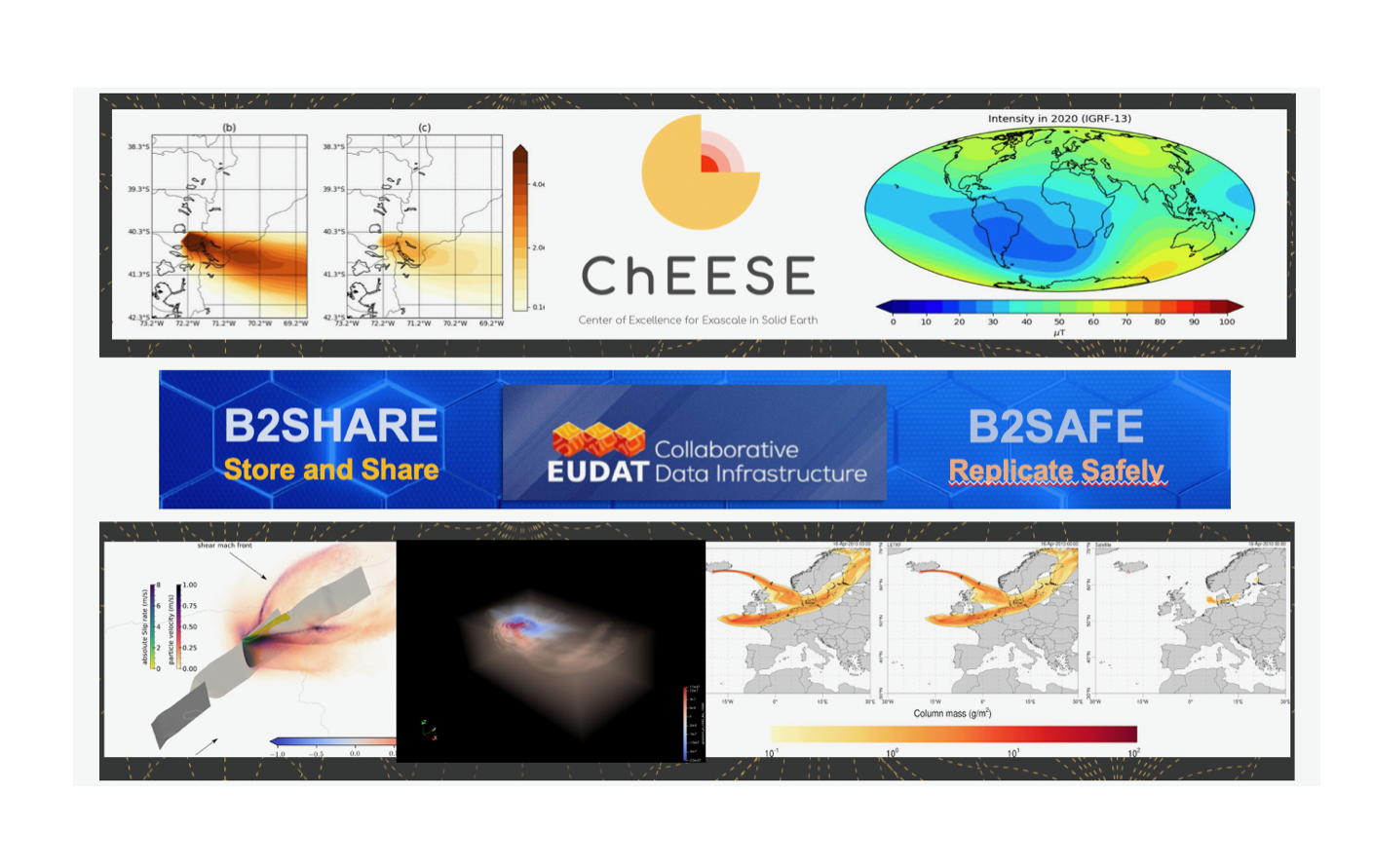Are you fascinated by high-performance computing and seismology? Are you curious to know how to numerically solve complex wave propagation problems?
Spend three full days interacting and learning from the developers of the ChEESE flagship codes for computational seismology completely free and online!
Save the dates from 21- 23 October 2020 for the ChEESE Advanced Training on HPC for Computational Seismology. You will have the opportunity to learn about the four HPC-powered software packages ExaHyPE, Salvus, SeisSol and SPECFEM3D.
ExaHyPE is a hyperbolic PDE engine used for solving systems of conservation laws to model seismic wave propagation problems.
Salvus uses a spectral-element approach to solve wave propagation problems and perform full-waveform inversion on unstructured meshes in 2 and 3 dimensions.
SeisSol solves seismic wave propagation and dynamic rupture problems using higher-order Discontinuous Galerkin (DG) methods on unstructured tetrahedral meshes.
SPECFEM3D is based on the higher-order spectral-element (CG) method for unstructured meshes. It can solve the linear seismic wave propagation in heterogeneous 3D models.
All attendees will have the opportunity to present their work in a lightning-talk session.
Click here for more information.

